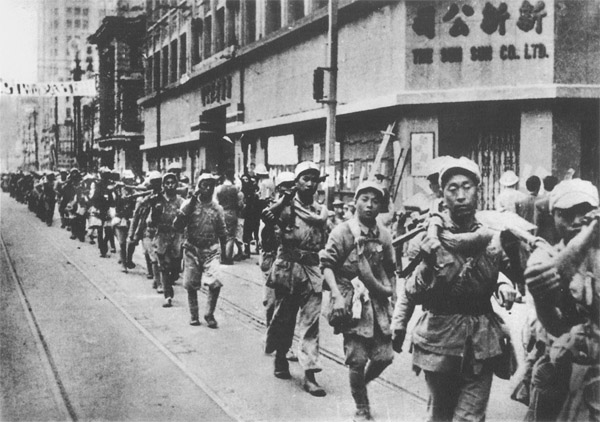Troops and the city
 0 Comment(s)
0 Comment(s) Print
Print E-mail China Daily, March 11, 2019
E-mail China Daily, March 11, 2019

Book presents a panoramic view of the Party-led takeover of Shanghai in 1949, Mei Jia reports.
Before Communist troops were to take over Shanghai from Kuomintang rule in 1949, a brochure was printed, offering 15 lessons of "things you need to know about city life".
Shanghai then had a population of 6 million and was the largest city in Asia. It was the industrial and commercial center of China. And when leaders of the Communist Party of China realized that Shanghai might be the place where many of the soldiers would get their first urban experience, they released guidelines that were thought necessary for the troops to stay disciplined.
Following the "countryside to cities" route of revolution for almost 30 years, many of the soldiers at the time were not familiar with city life.
Previously, when an army unit seized Hangzhou, now capital of Zhejiang province, there were reports about broken water taps, waste of pipe water (records show 82 percent of Shanghai residents got their supply from tap water back then) and missing electric bulbs.
On May 10 that year, when preparing for taking over Shanghai in the nearby Danyang township, Chen Yi, later New China's first mayor of Shanghai, held a meeting to promote discipline.
"Being well-behaved and disciplined is the first present we gift the Shanghai people, who have high expectations of us," Chen said, according to the Selected Works of Chen Yi on Military, published by the People's Liberation Army Press in the 1990s.
He asked the soldiers to learn about urban life. The political department of the PLA Third Field Army compiled the brochure, informing the troops about Shanghai residents and their employment, as well as how to use public transportation, how to cross big roads or use water, electricity and gas appliances.
In addition, information was given about unemployed people and people involved in the sex trade or petty crime.






Go to Forum >>0 Comment(s)